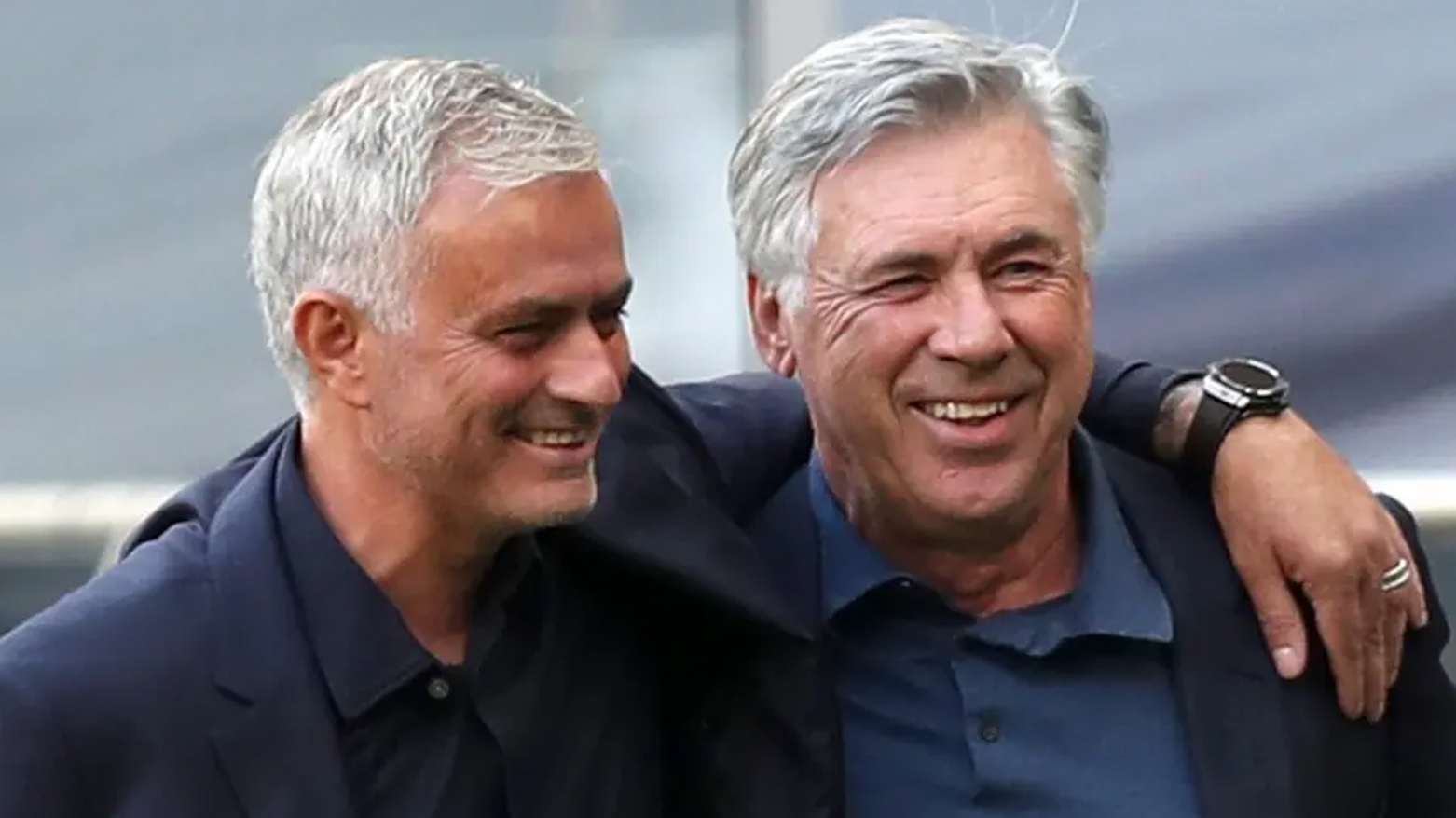The End of an Era or a New Beginning
Mourinho and Ancelotti’s era in European football faces twilight as modern tactics evolve. Mourinho’s recent struggles contrast Ancelotti’s adaptability and continued success. The rise of new-generation coaches questions their lasting relevance.

ERBIL (Kurdistan24) – For two decades, the names José Mourinho and Carlo Ancelotti have dominated European football. Both men, each in his own way, embodied tactical brilliance, charisma, and the ability to lift teams from decline to glory. Yet as modern football evolves with unprecedented speed, questions now loom: has the golden era of these two master tacticians finally reached its twilight?
It was a spring evening in 2004 when the football world witnessed the emergence of a young Portuguese manager who would later be known as “The Special One.” José Mourinho, then leading FC Porto, stunned Europe by lifting the UEFA Champions League, bringing continental glory to a club that had long been dismissed as an underdog.
That triumph catapulted Mourinho to Chelsea, where he immediately revolutionized English football. He delivered the club’s first Premier League title in 50 years and added domestic cups to the cabinet, crafting an aura of tactical dominance. Inter Milan soon followed, and with them came another golden chapter—Mourinho led the Nerazzurri to the treble in 2010, securing Serie A, Coppa Italia, and the Champions League in one historic season.
Real Madrid was next, and though Barcelona’s supremacy under Pep Guardiola overshadowed much of his tenure, Mourinho revived Madrid’s pride, clinching La Liga and the Copa del Rey. A second stint at Chelsea brought another league title in 2015, though it quickly unraveled. Spells at Manchester United, Tottenham, and Roma followed—each with flashes of brilliance, like the Europa League title with United and the Conference League triumph with Roma, but also abrupt dismissals as results declined.
Most recently, Mourinho’s venture with Fenerbahçe ended swiftly after the team failed to qualify for the Champions League, leaving him once again without a bench. Once the fiery disruptor of European football, Mourinho now faces doubts over whether his philosophy can adapt to the rapid tempo and pressing game of modern football.
Carlo Ancelotti’s career has taken a strikingly different arc. Known for his calm authority and tactical flexibility, Ancelotti has repeatedly reinvented himself across Europe’s top leagues. At AC Milan, he forged one of the most iconic midfields of all time and won two Champions League titles. Later, he led Chelsea, Paris Saint-Germain, Bayern Munich, and Napoli with varying degrees of success.
When many believed his career was winding down after a modest spell at Everton, Ancelotti stunned the football world by returning to Real Madrid and once again lifting the Champions League and La Liga. That achievement not only silenced doubts but also reaffirmed that experience and adaptability could outlast youthful innovation. Today, he stands as the chosen manager of Brazil’s national team, embodying longevity in a sport that often discards even the most successful figures quickly.
Mourinho himself once suggested that Ancelotti’s time at the top was nearing its end. Yet the Italian tactician’s continued success has proven otherwise. While Mourinho’s career has increasingly been defined by controversies and early dismissals, Ancelotti has demonstrated resilience, reshaping his approach and showing that veteran managers can thrive in a landscape dominated by high-pressing systems and data-driven strategies.
The rise of new-generation coaches—such as Pep Guardiola, Jürgen Klopp, and younger tacticians across Europe—has changed football’s language. Today’s players demand dynamic pressing, fluid tactical shifts, and relentless intensity, leaving traditional defensive pragmatism less effective.
The question remains: can Mourinho adapt his philosophy and innovate, or will his legacy remain that of a brilliant disruptor who could not keep pace with the game’s evolution? If he reinvents himself, he may yet follow Ancelotti’s path of resurgence. If not, history may remember him as a giant whose decline mirrored his refusal to change.
Both managers remain legends. Mourinho’s triumphs with Porto, Inter, Chelsea, and Real Madrid, and Ancelotti’s unparalleled record of Champions League glory, have already etched their names into football’s pantheon. But the contrasting trajectories of their careers illustrate a broader truth: in modern football, legacy alone cannot sustain relevance.
For Mourinho, the challenge is to embrace change before the game leaves him behind. For Ancelotti, his continued success proves that adaptability, not age, determines a manager’s fate.
Whether this is truly the end of their shared era, or the dawn of a new chapter for one and the conclusion for the other, will define how football remembers two of its most iconic tacticians.